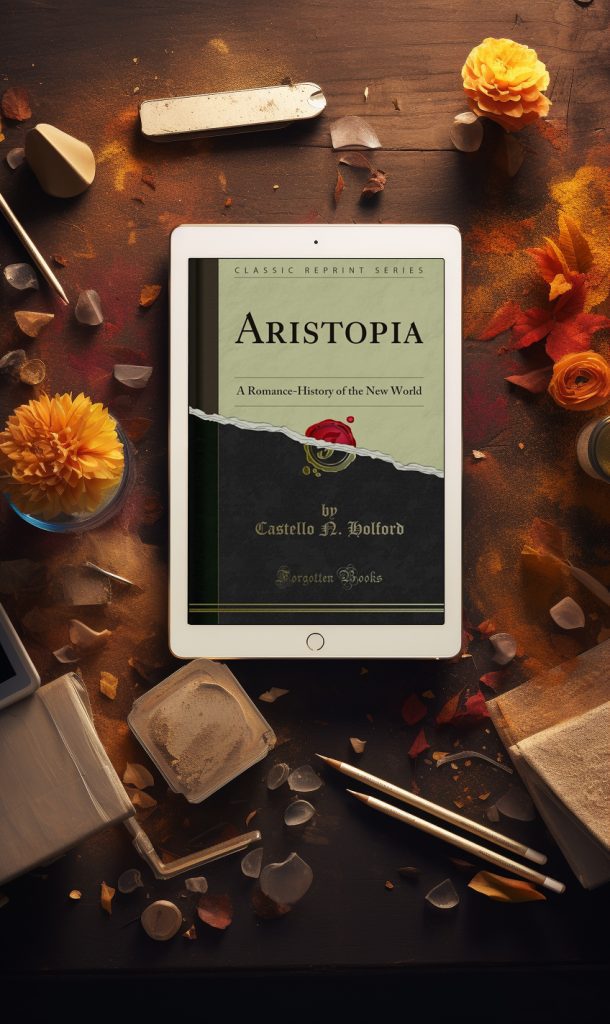Unlike historical fiction and historical non-fiction, alternative history is a subgenre that explores the “What if” of a scenario. And what really kickstarted all of that is the book Aristopia, considered to be the first English-language full-length alternate history novel published.
Aristopia by Castello Holford is a fascinating dive into a dreamlike society that blends political ideas with the captivating world of alternative history. What if we could imagine a reality where democracy truly thrives and social justice is a reality?
This novel invites readers to really think about the concept of alternative history, pushing us to reflect on the values that shape our lives and the societies we live in. As the characters navigate the ups and downs of governance and human nature, the story raises an important question: what if the journey toward a better world is worth taking, even if perfection seems just out of reach?
Related10 Historical Fiction Novels That Deserve a Screen Adaptation
What is Aristopia About?

Often recognized as one of the first examples of alternative history fiction, Aristopia stands out by sharply contrasting with the real-life politics and social issues of the early 20th century. Holford’s work came before many well-known texts in the genre, establishing it as a key piece that paved the way for future explorations of alternative history.
While earlier stories may have touched on speculative or different possibilities, Aristopia boldly examines how various historical events could lead to a completely reimagined society, sparking our imaginations in unexpected ways.
The novel paints a picture of a world where democracy and social harmony come from a revamped government, reflecting Holford’s critiques of his time. This focus on social change through alternative history storytelling laid the groundwork for future writers to explore similar themes, making it a must-read for anyone interested in this genre.
RelatedWhat If: The 9 Best Riveting WW2 Alternate History Books
In Science Fiction in the 20th Century, Edward James highlights the importance of Aristopia as a pioneering work in the realm of alternative history. He points out how the book tackles crucial social and political themes, using its reimagined setting to critique the pressing issues of Holford’s era.
James argues that Aristopia offers not just entertainment but also a thoughtful look at governance, democracy, and what it means to be human. By placing it alongside other influential works, he shows how it set the stage for future authors to explore themes of political speculation and societal change. Holford’s impact is clear: he helped create a tradition of using alternative history to reflect on real-world problems and consider the potential for meaningful change.
Enjoying this article?
Subscribe to our weekly newsletterWhy Should You Read Aristopia?

Relatable Themes: The novel dives into themes of democracy and social justice, which are incredibly relevant today. It encourages readers to think critically about how our societies are structured and what changes could lead to a better world for everyone.
First of Its Kind: Aristopia is one of the earliest examples of alternative history fiction, giving you a chance to explore a foundational text that paved the way for many of the stories you might already enjoy – think of the “what if” scenarios you see in video games, movies, and TV shows.
RelatedMy Lady Jane: The Tudor Fantasy Series You Didn’t Know You Needed
Engaging Narrative: This book isn’t just about big ideas; it’s a compelling story filled with interesting characters who navigate complex situations. It’s thought-provoking while still being a fun read, making it easy to get lost in the pages.
Imagination and Reflection: It encourages creative thinking about the future. If you’re into writing, philosophy, or social activism, this book could inspire fresh ideas and new perspectives.
Discussion Starter: Finally, it’s a fantastic conversation piece. Reading Aristopia gives you insight into important discussions about governance and social change, making it perfect for chatting with friends or diving into class debates.
By diving into Aristopia, you’re not just reading a book; you’re stepping into a rich exploration of alternative history that challenges the way we think about our world and our future. It’s a genre worth exploring!















